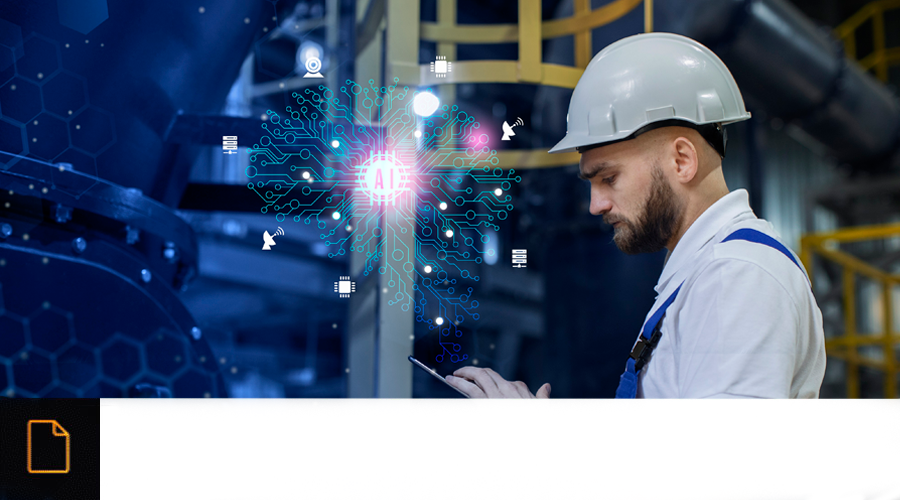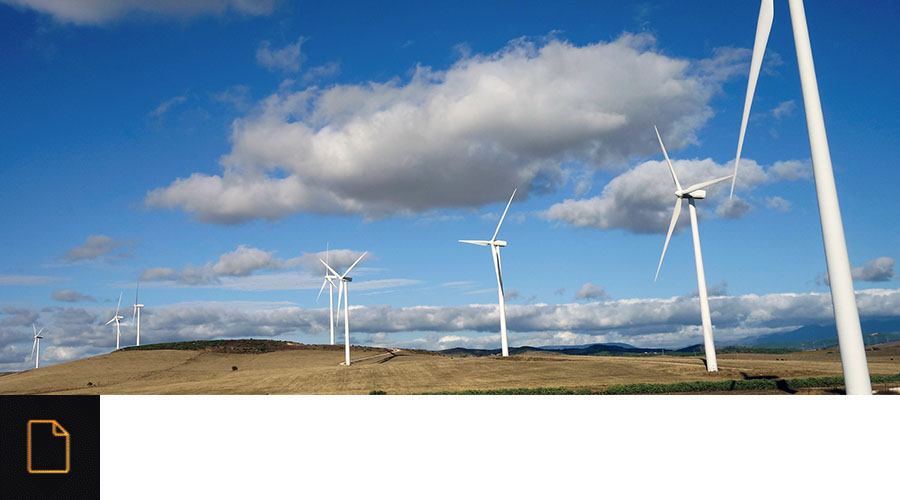DEMOCRATISATION OF ARTIFICIAL INTELLIGENCE
Written by Antonio Ramírez
13 Jun 2022 | Artificial Intelligence | Article
Artificial Intelligence has arrived in Industry 4.0
You are probably aware, as I am, that the rise of the Internet did not solve humanity's great problems, such as eradicating poverty or taking us to Mars, but it brought us other positive things, as well as negative ones. What's more, it changed the world for us.
In fact, a study by the London School of Economics indicates that it has brought more inequality than equality. If we reflect on this, we inevitably come to the following question: will we allow AI (Artificial Intelligence) to do the same to us or will we work to make it a full benefit? The answer lies in the democratisation of AI and especially in Industry 4.0, which is the subject of this article.
The reality is that we have only begun to build a tiny part of the full potential of AI, which promises profound social, economic and political transformations that we are not yet able to understand, and yet we already see that AI will not be (or rather is) a new industry, but will permeate and forever alter every industry that already exists. It will not change our industries, but the very boundaries and meaning of these industries.
- What is Democratising AI?
A classic definition would tell us that democratising AI is making artificial intelligence available to people, without requiring them to have a deep knowledge of data science.
I am more comfortable understanding the democratisation of AI as the design of technology that wraps data science in a way that allows any human being to use it, not only without AI knowledge, but to use it as they wish and as an addition of specialised intelligence to their own intelligence and to allow them to perform much more elaborate and specific tasks than they can do with their own intelligence.
I prefer to see it as a way to control the AI and make it dependent on a human being and that the final decision or choice of how to perform the task is made not by an algorithmic intelligence, but by a human one.
This initiative will ensure that AI becomes a tool to support and assist humans in performing more complex, difficult or pressing tasks, rather than an "obscure" substitute for them.
- And how to apply it in the context of #Industry40?
I can't talk about other cases, but in our case (MonoM) we have democratised AI within our industrial AIoT(*) platform so that operators, plant managers, maintenance or operations managers, among others, can put AI to work in the way they choose on the assets/infrastructure they consider.
Our approach to democratising AI has started with the predictive maintenance that we are able to perform on any asset in an industry (motors, valves, pumps, pipes, transformers, ....) or infrastructure (buildings, bridges, dams, railways, ports, ...) by creating predictive algorithms that are managed by the user from a dashboard via a series of simple questions with which the user can make the appropriate decisions to manage, monitor and control their assets and infrastructure predictively, without having knowledge of predictive analytics or AI.
- What are the benefits?
And it is this possibility of not having specific knowledge that is one of the two most important advantages or benefits that we see in MonoM, and that is that we can incorporate advanced knowledge without the need to have acquired it. This enhances the capabilities and productivity of employees, providing greater efficiency. In short, improving the capabilities of the company and of course accelerating the profitability and ROI of the incorporation of these technologies.
But I would also highlight as a benefit, the fact that this helps to have talent with lower learning curves, which until now we did not take into account due to their lack of experience or knowledge in certain areas. At the same time, we accelerate that learning/productivity curve by relying on democratisable AI.
This is an advantage in times like these, where finding certain talents is difficult and full of multiple obstacles. This helps us to have a more open human resources policy that facilitates the incorporation of talent, either by incorporating young talent, or by incorporating talent with experience in other areas or knowledge that is also necessary, or by making a mix of all of them.
- And the risks?
One mistake we often encounter in our contacts in industry is to think that the incorporation of this trend of democratising AI will, in the medium to long term, allow the management of industrial processes to be in the hands of AI.
Thinking in this way will lead to the inexorable end of the company or industry, as there are multiple factors that make human intervention necessary. Factors such as the continuous improvement of algorithms and the refreshment and cleaning of the data with which it works. The ability to improvise, adapt to new market trends/requirements or the continuous struggle for competitive improvement. And why not say it, problem solving, when failures, errors or others that break the dynamics are detected and that implies being able to seek creative, immediate and agile solutions.
- What if I want AI to be part of our industry?
You have two options, in my opinion. Follow the "Do it yourself" philosophy with its pros and cons, which makes you lose focus on your business, or work with industrial data experts who not only solve it for you, but also accompany it with other solutions, such as the digital twin, which allows you to maximise the management of industrial processes with industrial AIoT(*) platforms such as MonoM.
If you ask me, the goal of making the move to democratised AI is a fundamental step in turning your industry/company into an #EXOIndustry (Exponential Industry) differentiated from the competition.
Antonio Ramírez - CMO Álava Group
(*). - Artificial Intelligent of Things: Acronym that unifies AI and IoT in the same platform.











